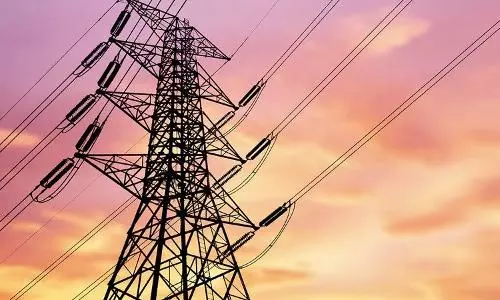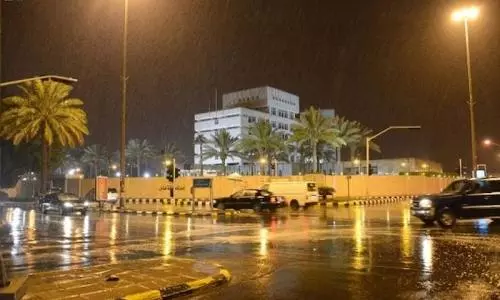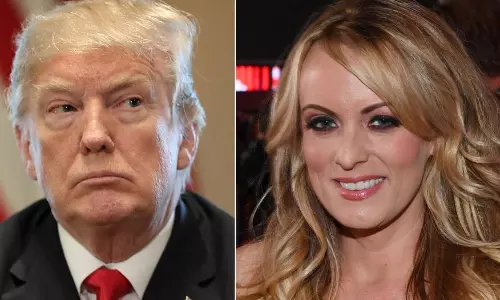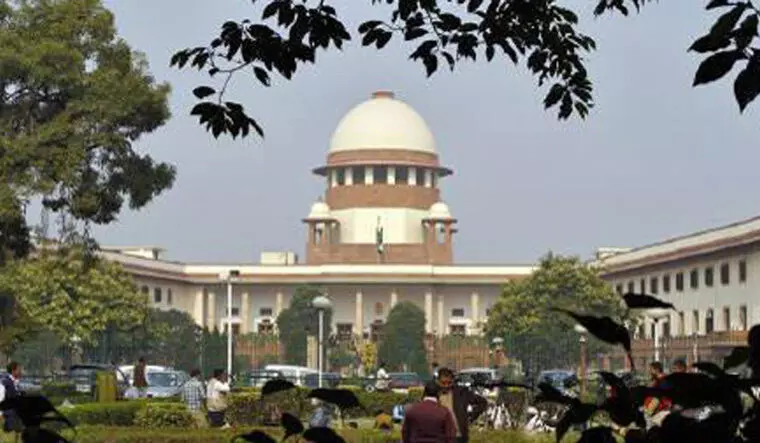
SC verdict on Maratha quota to have far-reaching implications
text_fieldsThe Supreme Court verdict of Wednesday, striking down Maharashtra's decision for a special 16 per cent quota for Marathas, will kick up a spate of issues for reservation beyond 50 % in employment and educational institutions, as implemented in several states including Kerala.
Incidentally, Kerala is one of the states that implemented a 10 per cent reservation for the Economically Weaker Sections (EWS) following the 103rd constitutional amendment that permits reservation up to 10 per cent for that category.
More relevant for the immediate context is the fact that this is going to immediately create a crisis in Kerala's Plus-One admission where the total reservation including the EWS category is 58 per cent, if the 10 per cent EWS quota is included.
As per last year's decision to add 10 per cent, the general merit quota had gone down to 42 per cent from 52 per cent.
However, in the matter of professional college admissions, when EWS reservation was introduced, an increment of total seats was also made. And thus the total reservation was limited to 40 per cent plus the additional 10 per cent.
But in the case of Plus-One admissions, the EWS quota was implemented without adding a single seat to the general quota.
In any case, the SC verdict that caps the reservation at 50 per cent is going to be a headache for state governments that exceeded the limit when adding the EWS quota.
Incidentally, Wednesday's SC verdict, issued unanimously by the five-judge bench of Justices Ashok Bhushan, L. Nageswara Rao, S. Abdul Nazeer, Hemant Gupta and S. Ravindra Bhat, was focused on the issue of whether the Indra Sawhney case verdict of 1992, needed to be revisited since only then could any legislation implying total reservation beyond 50 per cent be held legal. When the Supreme Court's three-judge bench first heard the plea against the Maharashtra government decision, the bench decided to refer the matter to a five-judge bench.
The five-judge bench unanimously decided that there are no exceptional or compelling circumstances to warrant such a review. The result is that the Maratha quota is illegal, but then so will be by implication other states' or even the Centre's reservation provisions if they exceed 50 per cent.
The only way for states to remedy the situation would be to trim the existing reservation of other eligible communities, but that again is barred by the Centre's order that EWS reservation should be implemented without reducing existing quotas. Further, at a political level, such a trimming move will meet with stiff resistance from affected communities, some of whom already complain of under-representation through insufficient quotas.
In response to the new SC order, former Kerala minister AK Balan has commented that the 10 per cent EWS quota will face questions of validity and unless the Centre brings in new legislation or issues an ordinance to validate it, a stalemate can ensue.
There are two other aspects too. First, the Indra Sawhney case verdict is by a nine-judge bench and jurists opine that as per the practice followed, only a larger bench can issue an order that supersedes or reverses the preceding order. All the SC did now in the Maratha quota case is examine whether a revisiting of Indra Sawhney decree is warranted by an appropriate bench and it ruled against it.
Second, the 1992 verdict by the nine-judge bench had after detailed and in-depth analysis endorsed the concept that the basis for a reservation should be social and educational backwardness and ruled against making economic backwardness a basis. The bench saw applying economic criteria as wrecking the foundation of the constitution. The current bench has reiterated that position and refused to touch that dictum.
It is also relevant that there are still cases pending before several high courts and the Supreme Court against the 103rd amendment of January 2019 in which the EWS quota was passed. In the light of the Maratha quota case, legal experts have called for suspending the implementation of the EWS quota.
Kerala government is heard to be making legal consultations in connection with this, for although the SC verdict is directly about quota in Maharashtra, the underlying principle will apply to all states, and litigants can easily cite the latest verdict against EWS as it exists in the state.
The new SC verdict in another part by a 3-2 majority, also bars states from declaring particular communities as backward whereas states like Kerala have been including certain communities among backward class though after due study. For example, most recently Kerala government had decided to include the Christian Nadar community among backward classes. But if this power rests with only the Centre, either its concurrence or a fresh process of approval may be needed for its sustenance.
However, there is a different picture in Tamil Nadu where 69 per cent reservation exists without any quota for EWS. And the state has not implemented the creamy layer principle directed in the Indra Sawhney case, by which those in a defined financial bracket are ineligible for quota even if they belong to the backward communities. But the Tamil Nadu decision enjoys the protection under Ninth Schedule of the Constitution, which the state achieved on the basis that the quota existing at the time could not be damaged and in view of the larger backward community strength in the population. A case against this position is also yet pending before the courts.
























